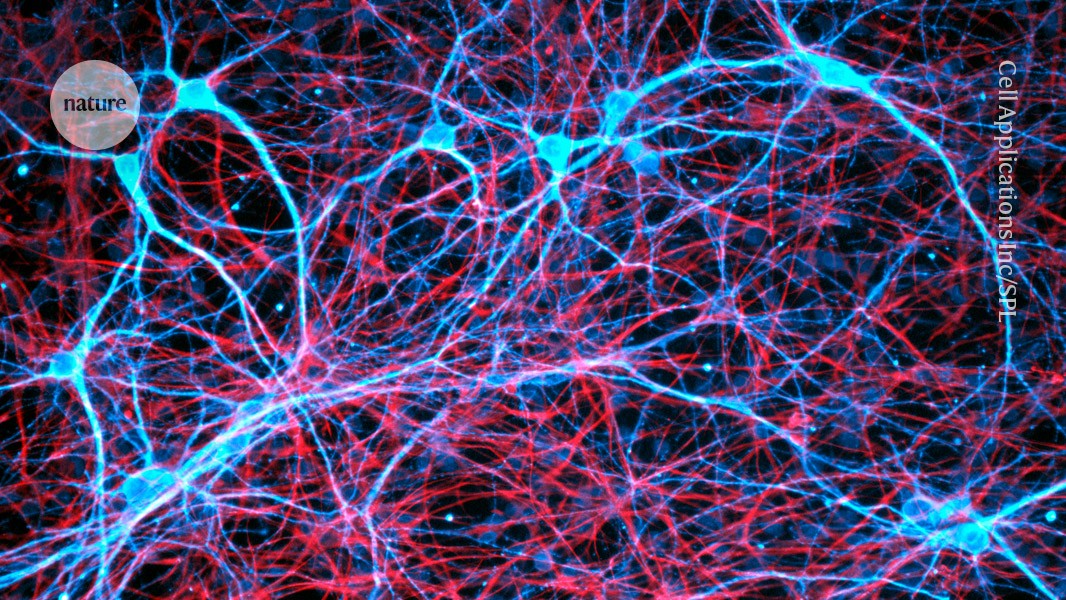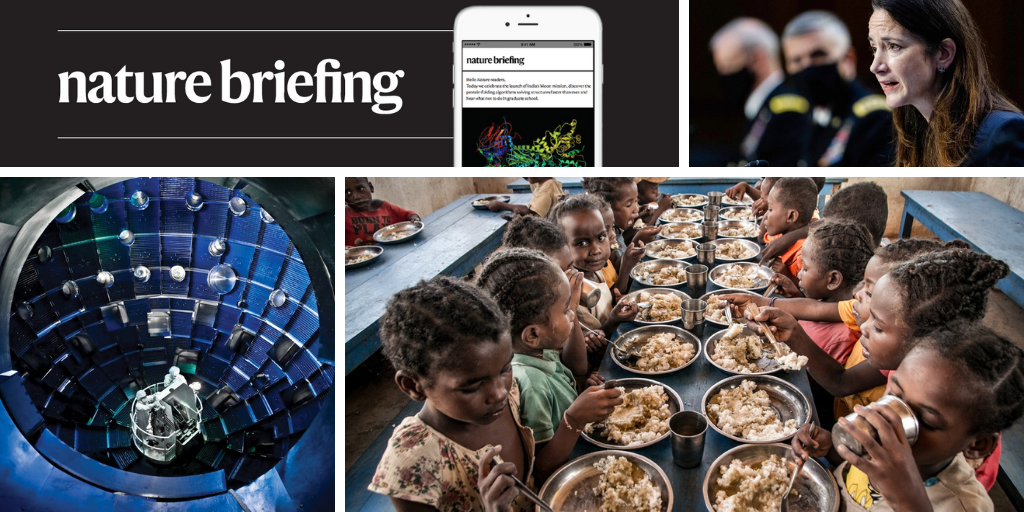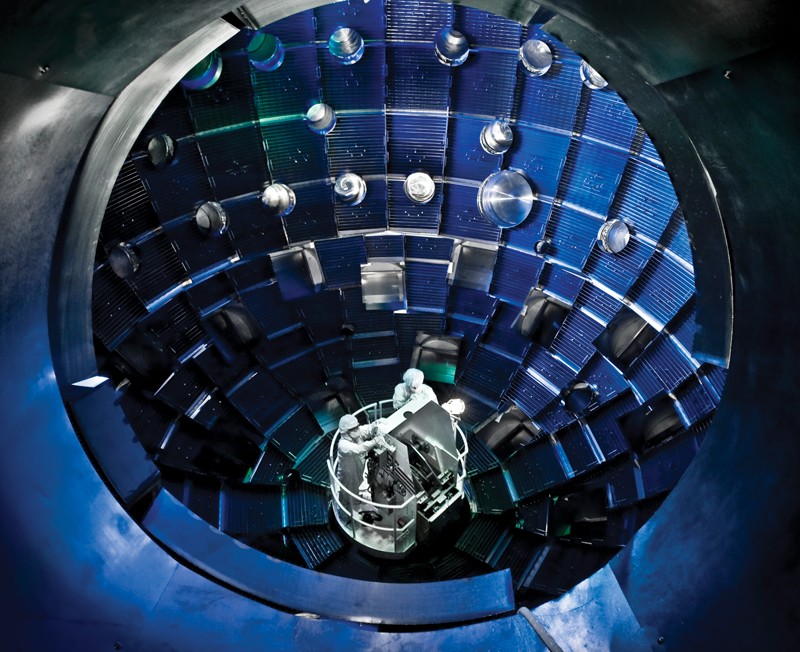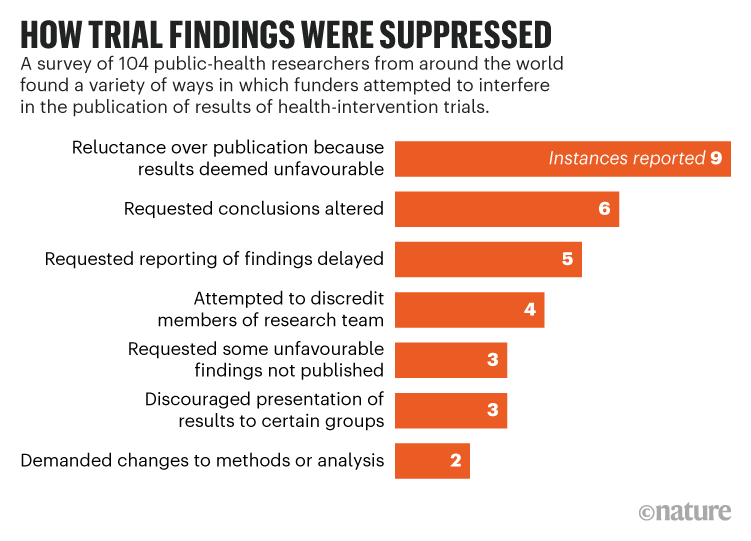Hello Nature readers, would you like to get this Briefing in your inbox free every day? Sign up here.
Scientists at the US Department of Energy’s flagship laser facility shattered their own record earlier this month by generating more than 10 quadrillion watts of fusion power for a fraction of a second — roughly 700 times the generating capacity of the entire US electrical grid at any given moment. News of the breakthrough has revived hopes that the long-troubled National Ignition Facility (NIF) might yet attain its goal of producing more energy than it consumes in a sustained fusion reaction. The NIF’s purpose is to study the initiation of nuclear fusion as it relates to the detonation of nuclear weapons.
A US intelligence-community investigation is inconclusive on the origins of SARS-CoV-2, but finds that the virus wasn’t weaponized and is unlikely to have been engineered. Scientists have expressed satisfaction that the report took a dispassionate, scientific approach to the controversial topic. It’s no surprise that the report hasn’t solved the mystery of COVID-19’s beginnings, say researchers and members of the intelligence community, because outbreak origin investigations are often complicated. After the release of the public report on 27 August, US President Joe Biden said that the United States would continue its efforts to trace the origins of COVID-19.
Read more: The COVID lab-leak hypothesis: what scientists do and don’t know (Nature | 11 min read, from June)
The first field trial of gene-edited wheat anywhere in Europe has been given the green light by British regulators. Researchers used CRISPR to reduce levels of an amino acid, known as asparagine, that is converted to the carcinogenic chemical acrylamide when bread is fried, baked or toasted. Following the UK exit from the European Union, the trial signals a move away from EU rules that equate gene editing with genetic modification, which is effectively banned in the bloc.
Read more: Revamp of UK CRISPR regulation will require public trust (Nature | 7 min read, from March)
Features & opinion
The global food system needs a revamp, argues a group of independent scientists tasked with ensuring that the science underpinning the 2021 United Nations Food Systems Summit is robust, broad and independent. Much of the world’s population cannot access a healthy diet: one person in ten is undernourished and one in four is overweight. Meanwhile, poor farming practices degrade soils, pollute and deplete water supplies and lower biodiversity. The group highlights the key roles that scientists should take in accelerating the transformation to healthier, more sustainable, equitable and resilient food systems.
Earlier this month, Facebook shut down the accounts of researchers associated with New York University’s Ad Observatory, a project in which informed volunteers allow study of advertising targeted to their accounts. Facebook’s heavy-handedness could open a window for research in the public interest, argues media scholar Ethan Zuckerman. He outlines principles that could guarantee researchers access to data under certain conditions — even if it is forbidden by a platform’s terms of service.
The success of the Pfizer-BioNTech COVID-19 vaccine has not meant the end of long nights and relentless days in Pfizer’s labs. A team of “variant hunters” races to track mutations in SARS-CoV-2. And “virus farmers” grow the latest variants so researchers can pit them against the vaccine. The work is both rewarding and exhausting. “My goal is to go to bed before the sun rises,” said Kristin Tompkins, Pfizer’s associate director of vaccine research and development. “A lot of times that doesn’t happen.”
Infographic of the week
Almost one-fifth of respondents to a survey of public-health researchers reported that they had, on at least one occasion, felt pressured by funders to delay reporting, alter or not publish findings. Public-health research has a history of interference from industry funders, so the team behind the study, led by health scientist Sam McCrabb, expected researchers running industry-funded studies to be those most commonly acting under duress. “But we didn’t find any instances of that,” she says. Instead, government-funded trials were the ones most often faced with efforts to suppress results deemed ‘unfavourable’ by the agencies or departments that had commissioned them. (Nature | 6 min read)
See more of the week’s key infographics, selected by Nature’s news and art teams.









More News
Rat neurons repair mouse brains — and restore sense of smell
Transient loss of Polycomb components induces an epigenetic cancer fate – Nature
Retractions are part of science, but misconduct isn’t — lessons from a superconductivity lab